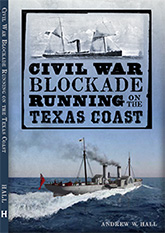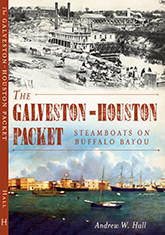Charleston: Five Important Reads
If you’re not completely exhausted and burned out by the coverage of events of the past few days in Charleston (and Columbia), I’d like to recommend five essays that are worth your time.
Ta-Nehesi Coates: What this Cruel War was Over:
Roof’s belief that black life had no purpose beyond subjugation is “sick and twisted” in the exact same manner as the beliefs of those who created the Confederate flag were “sick and twisted.” The Confederate flag is directly tied to the Confederate cause, and the Confederate cause was white supremacy. This claim is not the result of revisionism. It does not require reading between the lines. It is the plain meaning of the words of those who bore the Confederate flag across history. These words must never be forgotten. Over the next few months the word “heritage” will be repeatedly invoked. It would be derelict to not examine the exact contents of that heritage. . . .
It is difficult for modern Americans to understand such militant commitment to the bondage of others. But at $3.5 billion, the four million enslaved African Americans in the South represented the country’s greatest financial asset. And the dollar amount does not hint at the force of enslavement as a social institution. By the onset of the Civil War, Southern slaveholders believed that African slavery was one of the great organizing institutions in world history, superior to the “free society” of the North.
The Freedmen’s Patrol Blog: A Murderous Tradition of White America:
This attack does not present us with a mystery. The assassin told us with words and action precisely what he intended to do. The people who tell us otherwise could not have chosen a more obvious lie. He acted alone and isolated only in the narrowest, most literal sense that he did not gather together a conspiracy to help him. He had accomplices, morally at least, all around him. The people who named the streets, who raised the flag, who smiled off camera and took his picture, all played their part. They told the assassin that people who prosecuted the case for white supremacy, to the very point of war, deserved recognition and celebration. We don’t name streets after people we consider villains. We don’t fly flags we view as odious. The assassin has other accomplices who now pretend that the shooting had nothing to do with the persistence of white supremacy in the United States. They might deplore his methods, but by obscuring his ideology they enable it. Whether they cloak their cries of white power in the language of anti-anti-racism, as if one prefix did not negate the other, or say nothing because they dare not alienate what they correctly understand as a key voting constituency, they attend the shooting with more than indifference and less than the abhorrence it deserves. They know full well that if the assassin had different skin color or a different presumed religion, they would have no such scruples. How does one explain any of that, unless the excusers and obscurers are themselves white supremacists? If that doesn’t amount to racism, then nothing does.
Paul Mullins, Imagining the Racist Landscape:
Roof visited all these places in the months leading up to his mass murder at the Emanuel African Methodist Episcopal Church (see Corey McQuinn’s analysis of the Charleston Church’s history), yet he did not negate their histories by refuting the sites’ narratives. Ruff did not engage the critical histories told at Boone Hall, Sullivan’s Island, or McLeod Plantation, and his presence at Elmwood was at best a mute commemoration of Confederate dead with whom he perhaps fancied he had some affinity. His screed accompanying his “The Last Rhodesian” web page had nothing to say about the specific places he visited; instead, it simply repeated stale racist rhetoric and may betray the desperation of White privilege in the hands of an unreflective thinker. This is a somewhat different rhetorical approach than Confederate defenders and revisionists who weave historical fact and ideological biases into narratives that re-cast the war, the color line, and Southern heritage; Ruff’s text for the most part simply railed on a host of non-WASP peoples. Ruff does allude to “an American [sic] to be proud of and fight for,” a nation that apparently existed in some moment before Vietnam, but like many White supremacists Roof’s shallow history romanticizes a segregated world and rails at the perceived erosion of White privilege.
The Cotton Boll Conspiracy Blog, Deep debate cast aside for quick decisions based on ‘perception’:
Prior to the mid-1950s, the national news media didn’t perceive the persecution of blacks in the Deep South as being worthy of more than scant coverage, enabling extremists to kill, maim and intimidate blacks with almost complete impunity. With the murder of 14-year-old Emmitt Till in 1955 that began to change. The murder of civil rights activists in Mississippi in 1964 further prompted national news media to focus attention on Deep South transgressions. Once the major news media began to shine its spotlight on what was going on in the region regarding terror and mayhem, the federal government began to take a greater interest in putting an end to it. There are countless other examples of “perceptions” faced by blacks, along with those other minorities and women, that we now understand were not just misguided but out-and-out wrong. None of the above is to say that the flag issue isn’t worthy of discussion. But it should be done with logic and rational thought, rather than focusing on nebulous feelings that can neither be proved nor disproved.
Robert Moore, Charleston… and observations:
Historians have every right to be passionate and zealous for a “cause”; they can even be activists. It’s just that when that cause intersects with their professional historical era of interests, I find it a little troubling. For one, depending on the advocacy, I begin to question the ability of the same historians to really be objective when they return to the practice of writing and speaking about their historical era (obviously, in this case, I’m talking about the Civil War). More specifically, I find it troubling when, in the course of advocacy… for that common cause… the passionate and (overly?) zealous historians are much more accepting (yes… I’ve seen this in various places on the Web and in blogs) of those who rant and rave with poor history. I find it odd that they don’t keep the others in check. I’d say it might be a matter of one battle at a time, but then… there are also examples where I’ve seen selective dismissal of one ranting of poor history, but not another. I believe the “temporary lapses of forgiveness” of poor history displays compromised professionalism for zeal. I don’t think such compromise, even in the midst of passion for advocacy, is a good thing.
Good reads, and lots to consider.
___________ 





Woo, that last fellow, he’s very careful dog whistles. His commentators understood the whistles very well.
I’ve never perceived Robert to be in the habit of making dog-whistles. As for his second, verbose commenter, that’s just who Richard Williams is.
Thanks for the list, Andy. TNC was his usual awesome. But there have been quite a few others weighing in. There was a discussion thread at MoJo over the weekend where large numbers of folks brought the History to counter the “it wasn’t about slavery” folks. The efforts of folks like you to respect the actual records have not been in vain.
Just heard on the News that most major retailers here in Canada (!) are removing Confederate Flag related stuff from their shelves.
Thanks, Sandy. Hope you are well in the Pacific Northwest.
I am in exalted company today. Thank you, Andy.
A Southern newspaper primary source question based on Coates’ excellent essay: Have you ever traced (or could you trace) the origin of the “Free Society! we sicken at the name.” quote allegedly from the Muscogee Herald but appears to have been widely circulated in Northern newspapers?
It’s a fantastic quote for helping to explain what Union soldiers fought against, so I’m curious if it’s authentic or if it was fabricated as part of the 1856 presidential campaign. Certainly the underlying sentiment matches other prominent ideas from the time, and it’s not hard to find similar language (e.g., mudsill theory) even in speeches delivered on the Senate floor from that time.
Interesting. At first pass it’s all northern papers, from Ohio to Massachusetts, and lots of them. Nothing from the South.
Farthest south I get is the Athens, Tennessee Post:
http://chroniclingamerica.loc.gov/lccn/sn84024443/1856-10-10/ed-1/seq-3/#date1=1856&index=0&date2=1856&searchType=advanced&language=&sequence=0&words=greasy+mechanic+mechanics&proxdistance=5&state=&rows=20&ortext=&proxtext=&phrasetext=greasy+mechanics&andtext=&dateFilterType=yearRange&page=1
I can’t even confirm that such a newspaper as the Muscogee Herald of Georgia or Alabama exists, so I’m inclined to believe it was an anti-Buchanan fabrication. While that’s not really anything out of the ordinary for an 1856 newspaper, it is a little frustrating that it has shown up in places like the Battle Cry of Freedom and the 2005 AP History test (quoted from the New York Tribune but without any question as to its credibility).
Same here. There is a Muscogee County, Georgia (Columbus) on the Alabama border, not a Muscogee, Alabama AFAIK.Even if the town was defunct or changed names, there should be a record.
I have a feeling I am about to get on some people’s s list, but that’s life. The CBF has to go. No matter what anyone says, at the end of the discussion the fact remains that it is the symbol of racism, tyranny, oppression, and terrorism. There are places and times when it is appropriate to display that symbol. It is not appropriate on a state flag, in a state government building (unless a museum or funeral display), or in any way except historical or educational.
It has been co-opted by the racists and terrorists in this country. If the SCV wants their symbol back, then they need to fight for it. Their fight is not with historians. It is with the racists in the US. It is with anyone flying that symbol inappropriately. I think in some ways the SCV or at least some of their members recognize this. Unfortunately, it seems that too many do not. They’ve taught a false mythology for a century and half and now it has come home to roost.
The heritage movement is built on a bed of lies. I have no compassion for them because their lies also propped up white supremacy and racial hatred. Too damn many of them are racists. They are unwilling to reject the racists in their midst and they openly consort with them. The time of reckoning is now at hand. There is a price to pay for lying to people and it is going to be paid. The confederacy and what it stood for was rejected 150 years. Today, the racism and lies of associated with the CBF is being rejected. If that means confederate heritage goes with it, then that’s too bad. They made a choice.
Take the damn flag down and put it up.
That’s just not true, Jimmy.
You’ve been on peoples’ shit list for a long time already. 😉
I am humbled, sir, by your praise. 😀
Thanks for pointing these out.
Thanks for the boost, Andy. But… what in the world is “making dog whistles”?
A dog whistle is a form of coded speech, using specific phrases or words that have special meaning or importance to a target audience, that the uninitiated general public wouldn’t notice — hence “dog whistle.” Politicians sometimes use it to convey support for specific, controversial ideas without speaking about them directly. I don’t think you were doing that, at all.
I was kind of guessing that might be what it meant, but as a phrase… that’s a new one to me. Thanks for the clarification.
I wish you had a “Like” button for this, Andy.
I’m only half finished reading all of then and I’m just floored. This is good stuff!
Thanks.
Those were all great reads. Thanks for gathering them in one place, Andy.
It’s unspeakably tragic that it seems the only way light ever gets shone in these dark, reeking spider-holes of the human spirit is through some atrocious act, like the murders at Charleston.
Change often doesn’t slow and steady; it arrives in in fits and starts and sometimes, sadly, draped in tragedy.